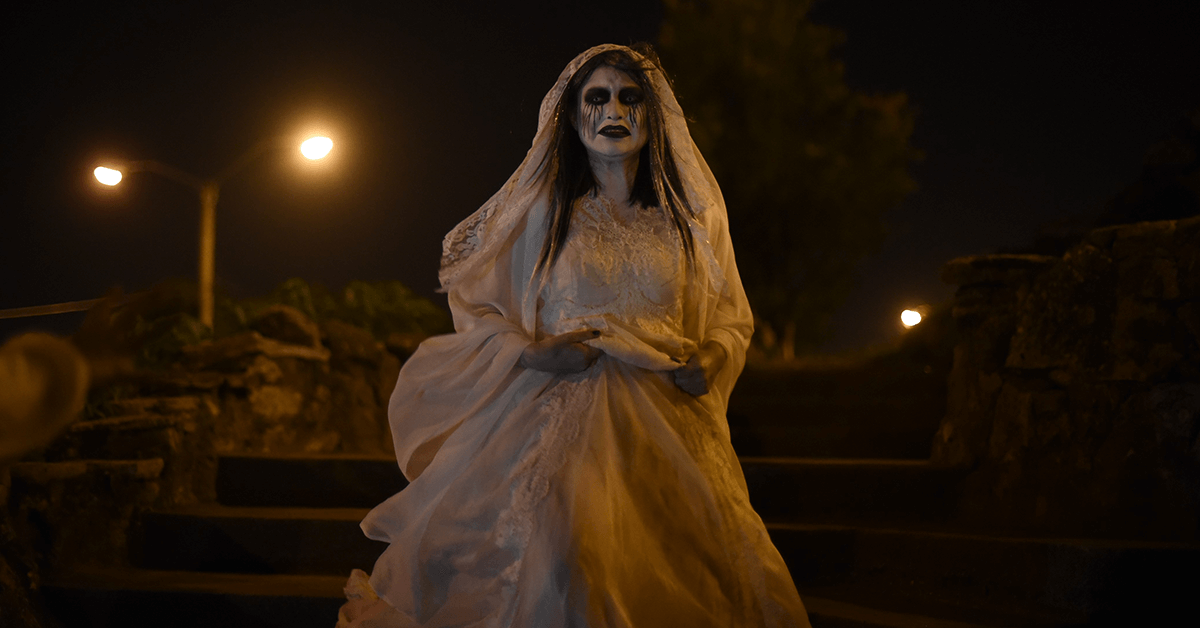
Photo via Pexels/Malcolm Garret
“I am Latina. I am also neither black nor white. I am mixed and the term Afrolatinx does not refer to me.”
You know when you’re filling a form, and it asks if you’re Hispanic or Latino, and you answer “uh-huh” and think you’re done with it, but then it wants to know what race you identify with, but the options are basically black and white, and you have no idea which to choose?
If you read The Americano regularly, you know that’s what happened to me last month when I answered the 2020 Census. For the first time in my life, I did not answer “black.” I checked “other” and wrote in “mulata.”
This because, as I said then, “the Afrolatinidad conversation has gotten to me, making me suspect I, too, may need to acknowledge my privilege: the light skin that falls somewhere between cream and the café con leche of a mulata blanconaza. I am now wondering if I am doing enough to prevent the systemic erasure of my darker brothers and sisters who do go through the worst of it in this country.”
To be completely honest, I was also wondering what the hell to “be” now that I, apparently, was no longer black, had never been white, and a third option along the lines of “none of the above” wasn’t usually available.
This is what is called colorism. I’d read work by African American scholars on the subject in which, the way I saw it, the question was about who was black enough to claim African heritage. Seeing it that way back then, it bothered me, probably because it sounded like rejection. And don’t we all deal with enough of that already? I’d think, “Black kids are dying at the hands of police in this country! How is a person’s shade of black relevant?
Then the colorism conversation emerged con fuerza in my Latinx community and I realized I had made up my mind and rushed to have an ill-informed opinion without ever fully and deeply understanding the issue, or trying to.
RELATED: Afrolatinos to Follow if You Are Looking for a Refreshing Perspective on Race
That’s why this time, I vowed, I would do it right. I would read and research and find the conversation (which I did, on Instagram) and listen before shooting off my mouth.
Here’s what I found (and learned):
On one end of the spectrum, poet and Afrolatinidad activist Melania Luisa Marte (@sheismela): “Just FYI for the confused folks: Afrolatina = Black woman, not woman of color. If you don’t identify/maneuver the world/are racialized as a Black woman, take that shit out your bio and your privileged pick-me mouth.”
A little harsh, you say, but see how it gets straight to the reality of black lives, Latino or otherwise?
Did I maneuver the world as a black woman? Am I racialized as black? The honest answer is: only when I am in the lily-white environments of Ivy League academia, or in the Midwest, and even then, I am not racialized as black. I am racialized as brown. As a Latina and a person of color.
According to @afrolatinos.siempre.palante, another activist IG feed, that doesn’t count. “Si no eres negr@ o parte de la Diáspora africana, aquí tu voz no importa. DIJE LO QUE DIJE. (Which is like saying, “Yeah, I said it.”)
But wait, I am not some person wanting to make myself black just because now there is a new cool name for it. You see, I was taught I was black as a result of effing colonization and its ensuing barbarities. That I am a mix of Spaniards who were too arrogant to know they hadn’t “discovered” anything + Black slaves from Africa + Taínos (the native indigenous tribe robbed of Puerto Rico).
In my family, people were not shamed for “trying” to be black. They were shamed for trying to be white.
If my great aunt Carmen saw any of us relaxing our hair, she’d immediately recite that gorgeous Luis Pales Matos poem, “¿Y tu agüela, aónde éjtá?” as a way to remind us that we were all black by virtue of being mixed because to the generation that raised my mother, if you had some black (a little, a lot, didn’t matter) you better not call yourself white, and why would you want to?
So I grew up thinking I was black because of my nose, and lips, and hair, regardless of skin color, and I was damn proud of it. The problem with that theory? It is born of old ideas that extend whiteness a greater degree of exclusivity than it does to other races, and it erases the fact that darker skinned people live a different experience than the rest of us.
That even before they are born, they have inherited systemic limitations and discrimination, their dark skin just the I.D. that will ensure that they will continue to suffer more than others after they are born. This is not a plea for pity. This is reality in America.
RELATED: Racism Is a Virus
And sure, I found feeds and articles espousing the other end of the spectrum on the colorism color chart. They talk inclusivity and other very nice things. Things that will make you feel good about how we are all Afro-descendants (which is true, all Latinos are) and every shade is welcome here.
But it’s not everyday, lived reality, and when I went deep, I realized most were brands with an agenda to bring more people into a possible marketing “trend,” or public relations professionals claiming the label for their client or clients, or some well-meaning people trying to create a larger movement to speak of self-esteem as if racial identity and self-esteem were the same thing.
Finally, there were (are) other whiteish black girls (or blackish white girls) like me who want to think this is about inclusion: theirs.
But it isn’t. Afrolatinidad isn’t about the people it doesn’t include. It is about recognizing that the darker your skin, the harder you must fight to prevent erasure. It is about black Latinos, plain and simple.
And now I know. I am Latina. And though I am afrodescendiente, I am also neither black nor white. I am mixed, mestiza, or mulata, and the term Afrolatinx does not refer to me. It refers to my black Latino sisters and brothers. It names them. It says that they exist and that they matter.
Moving forward? I just have to keep learning and listening, check my light-skinned privilege, and get moving on a petition to have the term “none of the above” included in every official form in this country to avoid what @sheismela describes in her beautiful poem, “What are you mixed with?” as “the exhaustion of having to answer a question/ that seems as foreign as you.”
Politics

Teamsters and UPS Reach Tentative Deal to Avoid Strike, 340,000 Workers to Get Raises
The tentative deal represents a huge win for full- and part-time UPS Teamster workers, who would get significant pay raises and better working...



One Republican Senator Is Blocking 265 Military Promotions, Leaving the Marines Without a Confirmed Leader
Sen. Tommy Tuberville's decision means these military officers are not getting the pay raises they’re owed, cannot move their families to wherever...
Local News



Teamsters and UPS Reach Tentative Deal to Avoid Strike, 340,000 Workers to Get Raises
The tentative deal represents a huge win for full- and part-time UPS Teamster workers, who would get significant pay raises and better working...



One Republican Senator Is Blocking 265 Military Promotions, Leaving the Marines Without a Confirmed Leader
Sen. Tommy Tuberville's decision means these military officers are not getting the pay raises they’re owed, cannot move their families to wherever...




